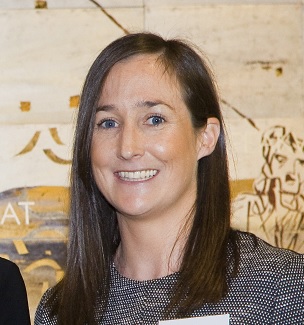
Project Summary:
There is a critical need for inexpensive, individualised rehabilitation interventions that improve motor function in stroke patients. Each year 15 million people worldwide suffer a stroke, and in one third of cases, the stroke results in permanent disability [1]. Long-term impairment to motor function of the stroke-affected upper extremity affects 40-45% of chronic stroke survivors [2]. Such impairments impact on activities of daily living, such as feeding and hygiene. Currently, most rehabilitation interventions for stroke are focused on intensive training and physiotherapy. Such interventions are expensive and complex because treatments need to be tailored to individuals; typically, this involves one-on-one patient-clinician therapy sessions.
Animal and human studies provide increasing evidence that non-invasive interventions that increase neuronal activity can harness the brains capacity for plasticity to optimise functional outcome. The use of music therapy as a non-invasive intervention to improve recovery of movement following neurological injury is gaining momentum. However, until now, the field has been limited by the separation of music and feedback about movement in relation to the music. We have developed a novel Mobile Software Application (app)—GotRhythm—that uses mobile phones and wireless wearable sensors to deliver music therapy to patients with real-time biofeedback.
Our app delivers a motor training protocol based on individualised choice of music, providing a simple, inexpensive, patient-driven rehabilitation intervention. The app collects data from each individual as they complete training tasks, providing a comprehensive motor performance dataset that can be correlated with clinical and physiological outcomes. The data are also fed back to the subject to increase motivation and compliance in the training protocol. The potential of the app to reduce the need for one-on-one patient—clinician sessions could lead to enormous economic benefits. Our app is currently compatible with five wireless sensors capable of measuring the rhythmic movement of different parts of the human body: wireless inertial motion units; stretch sensors; pressure-sensing socks; foot pedometers; and bicycle cadence monitors. The incorporation of a wide array of sensors supports a variety of sensorimotor modalities, including gross (e.g., elbow extension/flexion) and fine (e.g., finger sequence tapping) motor skills. Multiple sensors may be connected simultaneously, supporting both unilateral and bilateral activities, and physiological observation is supported through integration of wireless heart rate monitors.
We propose a project to test the efficacy of the GotRhythm app on motor performance and brain function in sub-acute stroke patients. We aim to use our GotRhythm app to entrain a motor response using music as a rhythmic cue, and test the efficacy of this app to (i) improve upper-limb motor function and (ii) increase motor cortical excitability in sub-acute stroke patients.
The results of our research have the potential to change the way that training therapies are used in clinics. Through our app, we give the patient the ability to perform as much training as they want, and we collect data to further refine the guidelines for optimal rehabilitation. The assembled multidisciplinary team are experts in their respective fields of neuroscience, clinical gerontology, population health, and software engineering. The team’s enthusiasm for the overarching aim and the proposed goals and approaches, together with their research achievements to date, will ensure the success of the project.



 The Brain Foundation is the largest, independent funder of brain and spinal injury research in Australia. We believe research is the pathway to recovery.
The Brain Foundation is the largest, independent funder of brain and spinal injury research in Australia. We believe research is the pathway to recovery.